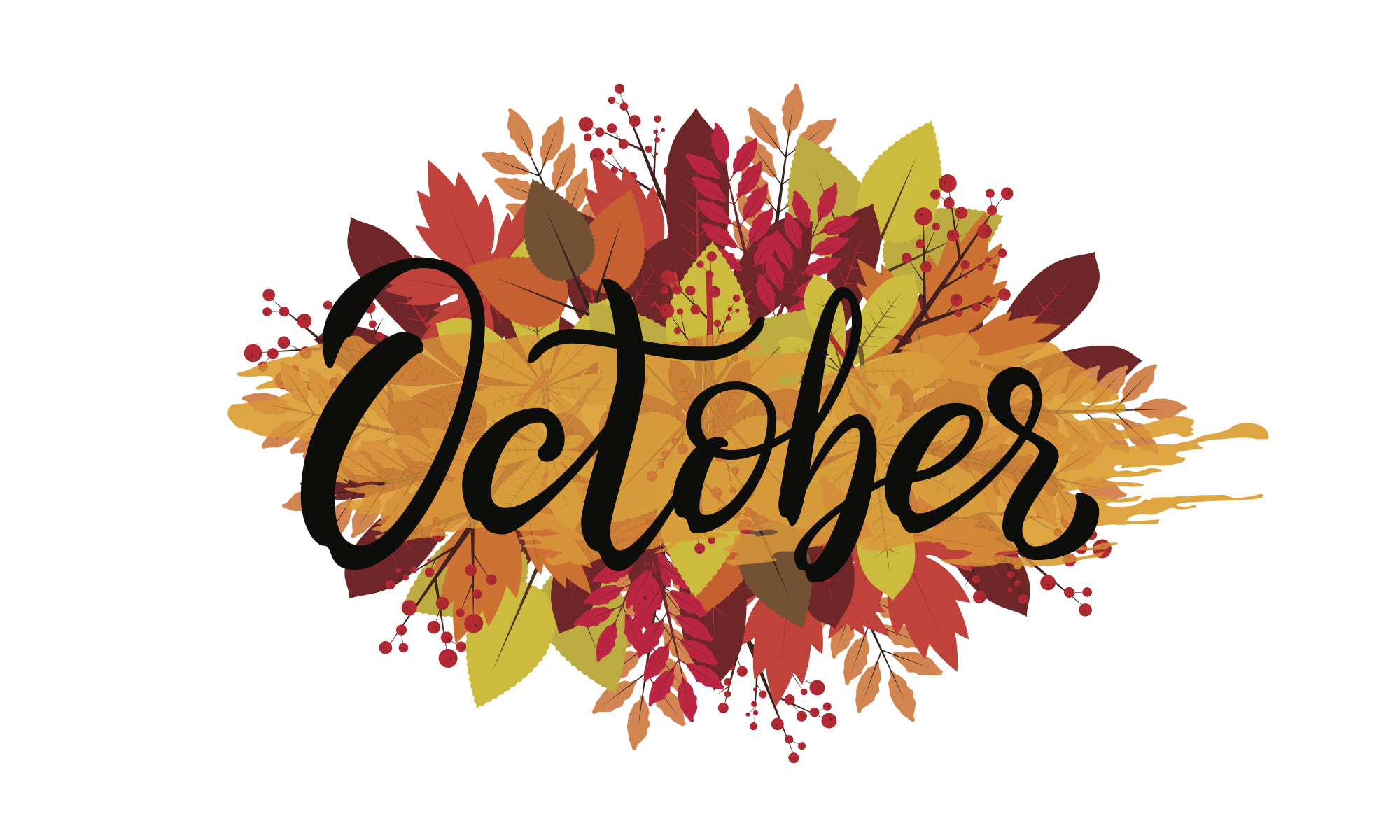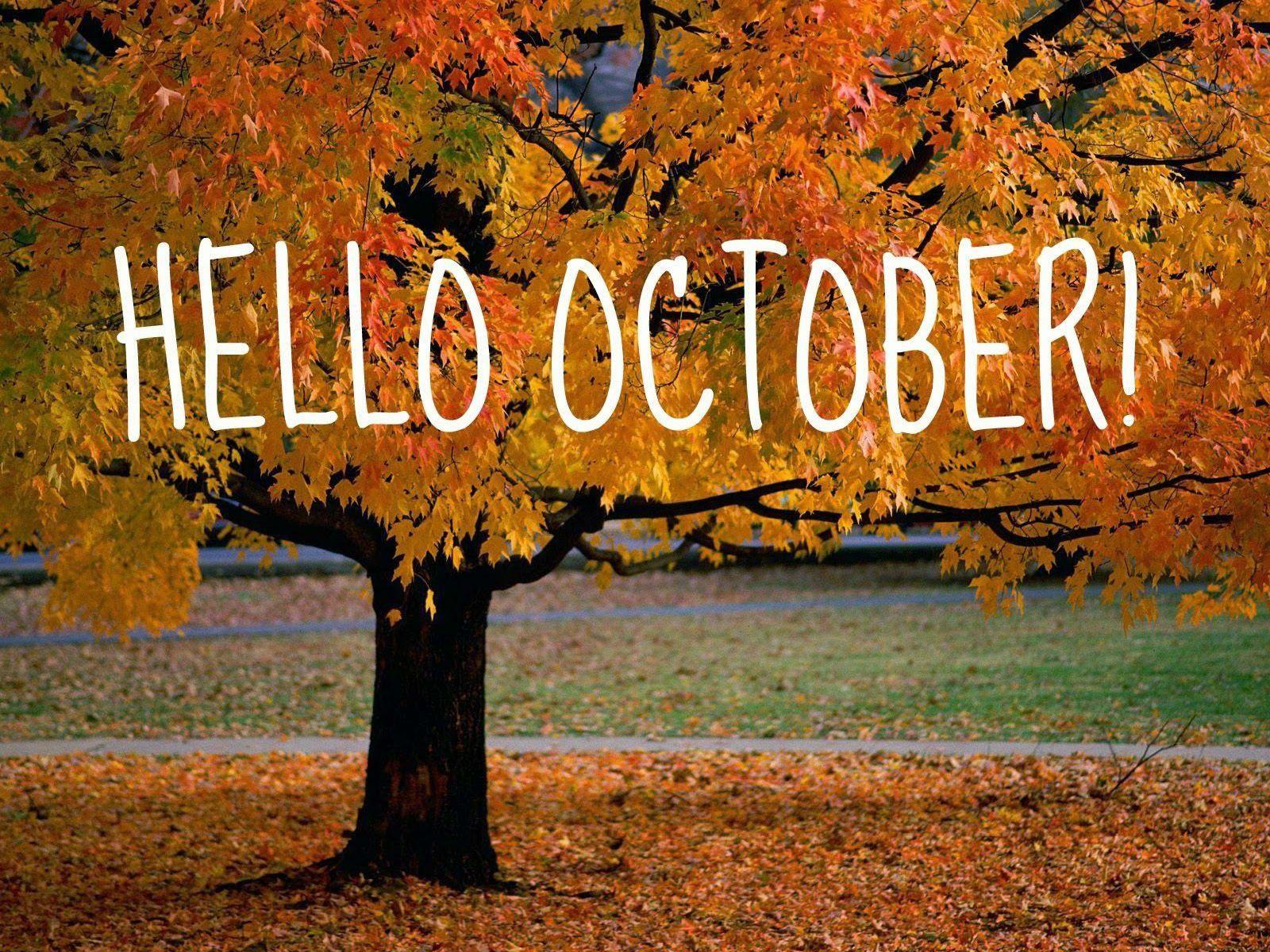October Astrological Sign - What The Calendar Tells Us
When we think about the month of October, our thoughts might turn to crisp air, changing leaves, and perhaps, for some, the idea of what an october astrological sign might be. It's interesting, really, how the names of our months connect to numbers, and how these ancient ways of marking time still influence our modern calendar. You know, it's almost like there's a hidden story in every month's name, especially when we consider how things used to be.
It seems, in some respects, that the way we name our months has quite a bit of history to it. For instance, the name for September, you know, comes from a Latin word that means "seven." Then, October, well, its name comes from a Latin word that means "eight." This might strike you as a little odd since October is our tenth month, and September is our ninth. It just goes to show, doesn't it, that our calendar has shifted around over time.
So, when we talk about astrological signs, people often wonder about the specific ones linked to each part of the year. While our common understanding of the calendar places October as the tenth month, the very roots of its name point to an earlier system. This history is pretty cool, and it gives us a way to think about how we perceive time and, perhaps, even how we might connect with the general idea of an october astrological sign.
Table of Contents
- What's in a Name for October?
- How Did October Get Its Spot on the Calendar?
- Are There Other Ways to Track Time, Like for October Astrological Sign Information?
- What Zodiac Signs Do People Talk About?
- What Do Those Astrological Sign Abbreviations Mean?
- Is October 10th Special for Astrological Signs?
- A Look at How Calendars Change
- What Happened When Kodak Used a Different Calendar for October Astrological Signs?
What's in a Name for October?
It's fascinating to consider the names we use for our months, isn't it? Take October, for example. Its very name, you know, has roots in a Latin word, "octo," which means "eight." This is quite a direct link to a number, just like how the word "octopus" also comes from that same root, referring to something with eight arms. So, it's pretty clear that at some point, October was indeed the eighth month of the year.
This historical naming convention tells us quite a bit about older calendar systems. It's not just October, either. September, for instance, gets its name from "septem," which means "seven." This also points to a time when September was the seventh month. It makes you wonder, doesn't it, about the big changes that must have happened to our calendar to shift these months so far from their original numerical positions.
The transition from a calendar where October was the eighth month to our current system, where it's the tenth, is a significant historical detail. It shows how human societies adapt and refine their ways of marking time. This shift, more or less, affects how we perceive the flow of the year, and it's a foundational element when we start to think about things like an october astrological sign, as these signs are tied to the calendar's progression.
It’s almost like the calendar itself has a story to tell, with each month’s name being a little clue to its past. The fact that October means "eight" really emphasizes how different things were. This kind of historical detail helps us appreciate the system we have now, even if it feels quite fixed and unchanging. It’s a subtle reminder, too, that what we consider "normal" today has often gone through many stages of development.
Thinking about how the names came to be can give us a different perspective on the month itself. It's not just a block of days; it's a piece of history, a word with a deep connection to numbers and ancient ways of counting. This background is, quite frankly, a good place to start when we consider anything related to the month, including any discussion of an october astrological sign.
How Did October Get Its Spot on the Calendar?
The reason October is now the tenth month, despite its "eight" root, is actually quite interesting. It seems that at some point, two new months were added to the beginning of the year. These were January and February. You know, these additions kind of pushed everything else back by two spots. So, September, which was the seventh, became the ninth, and October, the eighth, became the tenth.
This calendar adjustment was a pretty big deal for how people organized their year. It changed the entire sequence of the months and, by extension, how people would track seasonal changes and important events. It's a clear example of how calendars are not just natural phenomena but are, basically, human constructs that can be changed and updated over time.
This historical shift means that when we talk about an october astrological sign today, we're doing so within a calendar system that has already gone through significant modifications. The signs themselves, of course, are tied to specific periods within the year, and these periods are defined by the calendar we use. So, the very structure of our calendar, and how October fits into it, is quite relevant to how we understand these signs.
It's a bit like an old story that keeps getting new chapters added to it. The core of the story remains, but the way it unfolds changes. The addition of January and February, you know, truly reshaped the yearly narrative. It’s a historical fact that sometimes gets overlooked, but it’s quite important for understanding our calendar as a whole.
This historical context helps us appreciate that the way we experience time is, in a way, a product of human decisions made long ago. It's not just about the sun and the seasons; it's also about how we've chosen to divide and name those periods. This is a pretty fundamental point when discussing anything time-related, including the specific characteristics of an october astrological sign.
Are There Other Ways to Track Time, Like for October Astrological Sign Information?
Beyond the standard calendar we all use, there are, of course, other systems for organizing and tracking time. For instance, in academic circles, especially with scholarly papers, you often hear about "journal volumes" and "issue numbers." These are ways to keep track of when a particular piece of writing was published, kind of like a specialized calendar for research. It’s a different way to mark progress over time, you know.
When a paper is published, it gets assigned a "volume number" and an "issue number." The volume number typically represents a full year's worth of publications, while the issue number refers to a specific batch within that year. It's a very precise way to pinpoint when something came out, which is pretty important for academic referencing. This structure helps people find specific pieces of information quickly.
While this might seem quite different from talking about an october astrological sign, it highlights a common human need: to organize and categorize time. Whether it's by months, by seasons, or by publication cycles, we always find ways to make sense of the passage of days. These systems, basically, help us keep things in order and make information accessible.
It's interesting to consider how different fields develop their own methods for this. The academic world, for example, has its own unique rhythm and structure for releasing new findings. This is, you know, just another example of how we create frameworks to manage information over time. It’s all about making sense of when things happen and where they fit in the grand scheme of things.
So, while volumes and issues are about academic papers, they share a common thread with calendars and astrological charts: they are all systems for ordering time and events. This general concept of organizing time is, arguably, quite universal. It applies whether you're trying to find an old research paper or trying to figure out details about an october astrological sign.
What Zodiac Signs Do People Talk About?
When people discuss astrological signs, there's a set list of twelve that typically come up. These signs are, you know, associated with different periods of the year, and each one has its own symbol and characteristics that people often talk about. It’s a system that has been around for a very long time, and many find it a fascinating way to understand personality traits and life paths.
The source text mentions some of these signs, giving both their full names and their common abbreviations. For example, it lists Aries, which is often shortened to "Ari." Then there's Taurus, abbreviated as "Tau." These abbreviations are pretty common, especially in quick references or charts where space might be a bit limited. It's a way to make the information more concise.
We also see Gemini, often called "Gem," and Cancer, which is "Cnc." Lastly, Leonis, or Leo, is mentioned. These are, basically, some of the well-known zodiac signs that people refer to. Each one has its own specific time slot in the year, and people born during that period are said to have the traits associated with that particular sign.
It’s a system that, you know, has a certain appeal for many. People often look up their own sign or the signs of their friends and family to see if the descriptions resonate with them. It’s a common topic of conversation and a way for people to connect over shared interests in personality and destiny. This whole idea of signs is, in a way, a part of popular culture.
Understanding these names and their abbreviations is, really, a basic step if you're interested in astrology. It’s the vocabulary, so to speak, that people use to talk about these different personality types and the periods they represent. This general knowledge is useful, even if you are just looking into what an october astrological sign might involve.
What Do Those Astrological Sign Abbreviations Mean?
The abbreviations for astrological signs are, basically, shorthand ways to refer to the full names. It’s a bit like how we might shorten "September" to "Sep." or "October" to "Oct." in writing. These shorter versions are, you know, quite practical for quick notes or when you're looking at a chart that needs to fit a lot of information into a small space.
For instance, the text gives us "Aries. Ari." This means that "Ari" is the common shortened form for Aries. Similarly, "Taurus. Tau." tells us that "Tau" is the abbreviation for Taurus. These are, essentially, standardized ways to write the signs that are widely understood by anyone familiar with astrology.
We also see "Genimi. Gem." for Gemini, "Cancer. Cnc." for Cancer, and "Leonis.." for Leo. The use of these abbreviations is, in a way, a very common practice. It makes it quicker to write and read about the signs without having to spell out the full name every single time. This is, quite frankly, a useful convention.
So, if you ever see "Ari" on a chart, you'll know it refers to Aries. Or if you see "Cnc," you'll understand it means Cancer. These little shortcuts are, you know, pretty helpful for anyone trying to get a handle on the language of astrology. They simplify communication and make it easier to talk about the different astrological sign types.
It’s important to remember that while they are shorter, they carry the full meaning of the original name. They are just a more condensed way of presenting the same information. This kind of abbreviation is, basically, found in many different fields, not just astrology, showing how people often look for efficiency in communication.
Is October 10th Special for Astrological Signs?
The tenth day of October can hold special meaning for individuals, as it's a specific point within the month. For some, it might be a birthday, which would then link them to the october astrological sign that covers that period. The text itself mentions a personal sentiment tied to October 10th: "On october 10th, i express my heartfelt wishes,I hope the king has a good future, a successful career, all the best, everything is good, perfect,You can see this heart from the sun and the."
This particular quote shows how a specific date in October can be a moment for personal reflection and well-wishing. It's not necessarily about a universal astrological event, but rather a personal connection to that specific day. It's a reminder that dates, you know, can carry individual significance beyond their general calendar meaning.
While the broader astrological signs cover a range of days, a single day like October 10th can still be a focal point for personal thoughts or celebrations. It's a very human way of marking time, isn't it, by attaching wishes and hopes to particular moments. This kind of personal connection adds another layer to how we perceive the calendar and its days.
So, while the overall astrological sign for October spans a few weeks, individual days within that month can still be quite meaningful on a personal level. It's a good example of how the general calendar framework can intersect with individual experiences and feelings. This makes the concept of a date quite rich, really.
The sentiment expressed for October 10th, with its wishes for a good future and success, highlights the human tendency to use dates as anchors for hope and positive thoughts. It’s a simple but powerful way to engage with the passage of time. This, you know, is a universal aspect of human experience, regardless of astrological beliefs.
A Look at How Calendars Change
It’s quite clear that calendars are not static things; they can and do change over time. The historical details about January and February being added, pushing September and October from their original numerical positions, really show this. It’s a fascinating process, you know, how societies adjust their time-keeping systems to better suit their needs or beliefs.
These changes are often driven by various factors, perhaps new scientific understandings, cultural shifts, or even practical considerations. The fact that the names of the months still reflect an older system is, basically, a testament to how deeply ingrained these linguistic patterns become. It's a subtle reminder of the layers of history within our everyday lives.
Understanding that calendars evolve is important because it means our current system, which defines when an october astrological sign begins and ends, is itself a product of historical development. It’s not just a fixed, natural order, but a framework that has been shaped by human decisions over centuries. This gives us a richer perspective on how time is measured.
The way months are named and ordered can tell us a lot about the people who created and used those systems. It’s a bit like looking at an old map; it shows you how people once understood their world, even if that understanding has since been updated. This historical perspective is, you know, quite valuable.
So, the next time you mark a date on your calendar, it might be worth remembering that the system you're using has a pretty long and interesting past. It’s a human invention, after all, and like all inventions, it has gone through various stages of refinement and change. This applies to how we determine an october astrological sign, too.
What Happened When Kodak Used a Different Calendar for October Astrological Signs?
Interestingly enough, the idea of a different calendar system isn't just an ancient historical fact. The text mentions that a calendar where October became the eleventh month was, you know, actually adopted by Kodak for internal use. This system was in place for quite a long time, right up until 1989. It's a pretty unique example of a company creating its own way of tracking time.
This particular calendar, where January and February were essentially "inserted" later, causing October to shift

20 Interesting Facts About October - The Fact Site

Causes To Support This October - Givinga Foundation

October Scenery Wallpapers - Top Free October Scenery Backgrounds